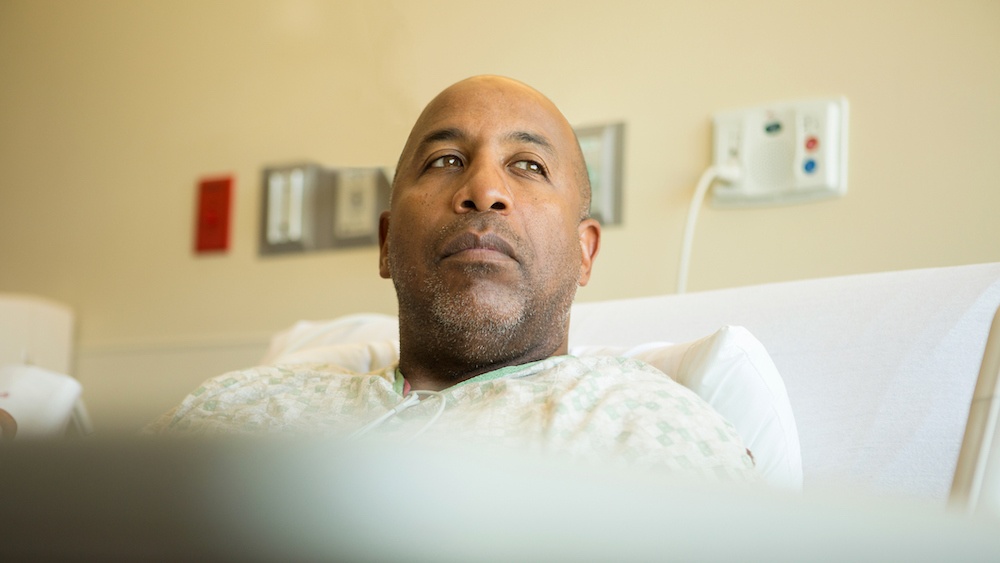If you’re interested in sharing your opinion on any cultural, political or personal topic, create an account here and check out our how-to post to learn more.
For all of the billions of dollars spent on research, development, testing and approval of medical treatments in the United States, one basic factor in healthcare system is both incredibly valuable and difficult to quantify: trust. Trust between doctors and their patients allows for better communication and quicker diagnosis and has been shown to improve medication adherence and mental health following difficult procedures. It is also inherently fragile and should not disrupted by the actions of federal policymakers.
Trust is even more precarious among minority communities, which have suffered from broken promises and deception for centuries. In 1932, the Public Health Service began a study entitled the “Tuskegee Study of Untreated Syphilis in the Negro Male.” African American men were injected with the disease without consent and left untreated. The program continued for more than 40 years, until a press story about the program finally broke in the 1970s. The Tuskegee Study is only a single example of a fraught history between providers, researchers and Black patients.
More recently, one Harvard study found that patients in “exception from informed consent” drug trials, in which treatments are administered immediately without obtaining consent from participants or surrogates, were disproportionately African American. At the same time, minority patients are underrepresented in traditional clinical trials, even those which study heart disease, breast cancer and other disorders common in minority communities.
Rebuilding this trust will require honest, open conversation, and a commitment to transparency by elected officials, care providers, drug makers and regulators. Unfortunately, one portion of the Lower Health Care Costs Act, Section 207, would reduce this commitment to transparency for biologic drugs sold in the United States, undermining the already fragile understanding between minority patients and the women and men who prescribe them their medications.
Under current U.S. law, biologic drugs, complex treatments derived from living organisms, must adhere to public standards set by experts through the U.S. Pharmacopeia (USP), an independent, nongovernmental organization that has served in this capacity for more than 200 years. This system sets standards for dosage, quality, and efficacy, and reassure Americans that their pharmaceutical supply chain is safe. Diabetes patients, many of whom are people of color, have been able to rely on insulin manufactured to dependable and safe USP standards since 1941. Patients struggling with other diseases and disorders directly benefit from these public quality standards and the reassurances they provide, as well. These evidence-based standards are supported by doctors, patient advocates, pharmacists, and manufacturers alike.
Just as importantly, the current U.S. system for quality standards helps promote competition and increases access to more affordable medicines. As biosimilars become more widely available in the U.S., they expand therapeutic options, enhancing the likelihood that patients will be able to begin treatment with biologic medicines.
A recent analysis found that that 1.2 million U.S. patients could gain access to biologics by 2025 as the result of biosimilar availability. These data also suggest that women and lower income and elderly individuals would disproportionately benefit from greater access to biosimilar medicines. Transparent standards help to facilitate the entry of biosimilars into the U.S. market, and are used by manufacturers to measure follow-on products against innovative pharmaceuticals. In turn, pharmacists can fill prescriptions with lower-cost options confidently, knowing that the products on their shelves will deliver exactly as stated on the label.
Removing the requirement to comply with public quality standards for biologics shifts to a system lacking in transparency — one in which the FDA and drugmakers would decide the standards for quality, without any opportunity for public input or oversight. This provision has been opposed by the American Association of Retired Persons (AARP), the American Cancer Society (ACS) and the American Pharmacists Association (APhA).
The Black Women’s Health Imperative is proud to speak out in opposition to Section 207 as a representative of the disenfranchised communities in our country, communities which have dealt with trust eroded by racism, a lack of consent, and the cavalier treatment of our health and safety long enough. Congress has bigger priorities, and better sense, than to pass this misguided legislative language.
____
Tammy Boyd is the Chief Policy Officer at the Black Women’s Health Imperative. BWHI is a national non-profit organization dedicated to advancing health equity and social justice for Black women, across lifespan, through policy, advocacy, education, research and development.
